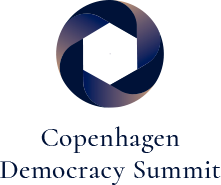
http://www.allianceofdemocracies.org/initiatives/the-copenhagen-democrac...
The DPI, conducted by Dalia Research in collaboration with the Alliance of Democracies and Rasmussen Global, is based on nationally representative interviews with over 125,000 respondents in 50 countries worldwide. This represents over 75% of the world’s population and 75% of the world’s GDP.
DPI survey data ranks countries on how effectively they are perceived to be delivering core democratic benefits in the eyes of their citizens, including:
- Perception of Political Voice : Do citizens feel their voice matters in politics?
- Perception of Public Interest : Do citizens feel their government acts in their interest?
Across the globe, governments are failing to convince citizens their voice matters and that institutions are acting in their best interest. More troubling, according to survey data, is the finding that public disillusionment is greater in democracies than in non-democracies. An astonishing 64% of citizens living in democracies responded their government “rarely” or “never” acts in the interest of the public. For example, the United States and the United Kingdom, long seen as leaders of the free world show glaring deficiencies. While not faring as poorly as other democracies, nearly two thirds or more of their citizens believe their governments are not acting in their interests.
Researchers noted that while citizens in democratic societies might be inherently more critical of their government than those living in non-democratic societies, perception is often as important as reality, and therefore the implications of the findings remain relevant and insightful.
Nina Schick, Director of Data and Polling at Rasmussen Global:
This groundbreaking global public opinion survey sheds light on the huge challenge faced by democracies around the world today. Democratic systems of governance are under severe threat, not only from foreign interference and the rise of autocratic regimes, but also from the huge crisis of confidence amongst the electorate. Democracies cannot afford to be complacent if they are to survive and prosper, and we are gathering at the Copenhagen Democracy Summit to begin to address these challenges.”
Nico Jaspers, CEO and Co-founder of Dalia Research:
“Political systems around the world are currently changing with a speed that we haven't seen in almost 30 years. The key to understanding why this is happening and what to expect next is to tap into global public opinion. Right now the biggest risk for democracies is that the public no longer sees them as democratic.”
The study is being released to mark the inaugural Copenhagen Democracy Summit on June 22nd 2018, at which global leaders are gathering to discuss the challenges facing democracy.
Top findings: Citizens in democracies are the most disillusioned
- In the eyes of the public, governments around the world are perceived as failing. More than half of the world (51%) thinks that their voice “rarely” or “never” matters in politics, and as much 58% believes that their government doesn’t act in their interest. (See Table 1).
- Democracies are seen even more negatively than non-democracies. In democracies, a majority of the population (64%) believes that their government “rarely” or “never” acts in the interest of the public. In non-democracies, people are less pessimistic, with only 41% saying the same. (See Table 1).
- Citizens in democracies don't feel their voice matters: Over half (54%) of citizens living in democracies think their voices “rarely” or “never” matter in politics versus 46% in non-democracies. Of the ten countries that perform the worst on ‘political voice’, nine are democracies. 74% of citizens share this sentiment in Japan, followed by Poland at 63%, France, Austria and Portugal at 62%, Norway at 61%, and Germany, the Netherlands and Belgium at 60%. (See Graph 1).
- Citizens in democracies don’t feel the government serves their interest: Of the ten countries where the public overwhelmingly says the government “rarely” or “never” acts in their interests, eight are democracies. This view is shared by almost two thirds (67%) of the electorates in Australia, Belgium, Japan and Ireland. In Poland it is even higher at 68%, and the sentiment climbs in Denmark (69%), Sweden (70%), Portugal (71%) and Austria (73%). (See Graph 2).










Add new comment